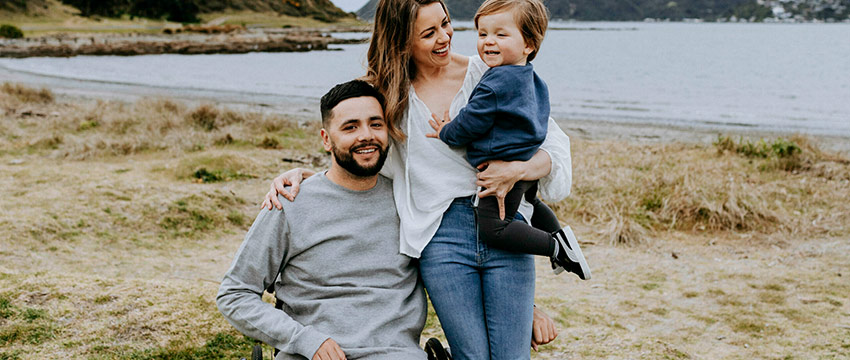What we have done - Psychosocial wellbeing after stroke

Understanding people’s well-being needs and current service provision
We built a deeper understanding of what is currently happening in care, what stroke survivors and whānau experience in stroke services, and what they need to support their long-term well-being.
You can find summaries of our research in the following materials:
Summaries of people’s experiences
We have developed these in conjunction with Good Health Design, and with input from our participants with stroke.
- Our first booklet summarises people’s experiences of how well-being was supported (and at times, not supported) within stroke services - Stroke Booklet ONE_MAR25.pdf
- Our second booklet focuses on experiences in stroke services specific to Māori -Stroke Booklet TWO_MAR25.pdf
Enhancing care to support well-being in stroke services
Over the last year, we have been focusing on developing a quality framework for stroke services. This is designed to guide stroke services and healthcare practitioners in taking a proactive approach to supporting well-being. It details eight components of care that support well-being, and consists of:
- Detailed descriptions of each component of care.
- Exemplar quotes and vignettes that illustrate when each component of care is addressed well – and when it is not addressed well.
- Specific actions that can be taken by health systems, stroke services, and healthcare professionals to embed each component of care.
- Reflexive activities to support healthcare professionals and services to reflect on current service provision and identify specific actions that can be taken to improve well-being.
A summary of this framework is available in this poster which has been presented at the European Life After Stroke Forum. Quality framework poster 2025.pdf
The full framework, complete with materials to support reflection and implementation are available here Wellbeing after stroke - Centre for Person Centred Research - AUT
Further resources
Posters
We have presented our work at multiple conferences. These posters show some of the findings we have shared
- Experiences of psychosocial well-being in Aotearoa [PDF, 186.8 KB]
- The emotional work of people in stroke services in Aotearoa [PDF, 246.3 KB]
- The problem with the pace of stroke care in New Zealand [PDF, 312.1 KB]
- Supporting well-being after stroke - a quality framwork for services
Publications
We have published three papers from the research so far. These are all available open access, meaning you do not have to pay to read the papers.
- Our literature review on well-being after stroke:
Bright, FAS, Ibell-Roberts C & Wilson B (2023) Psychosocial well-being after stroke in Aotearoa New Zealand: a qualitative metasynthesis, Disability and Rehabilitation, DOI: 10.1080/09638288.2023.2212178 - Focusing on he experiences of healthcare professionals, describing what influences how they address well-being after stroke.
Bright FAS, Ibell-Roberts C, Featherstone K, et al. ‘Physical well-being is our top priority’: healthcare professionals' challenges in supporting psychosocial well-being in stroke services. Health Expect. 2024; 27:e14016. doi:10.1111/hex.14016 - Describing the study and development of the quality framework for care available in the resources link above.
Bright FAS, Ibell-Roberts C, (2025). What are the core features of stroke care that support well-being? A qualitative study from the perspectives of people with stroke, whānau and stroke care providers in Aotearoa New Zealand.
We have other publications planned, including:
- A paper describing the work that people with stroke do to maintain and build their own well-being while in stroke services
- A paper focusing on what enables healthcare professionals to prioritise well-being, focusing on case examples of staff who work in the ways that people with stroke describe as important.
Previous study updates
Would you like more information?
If you would like to be on the mailing list to be informed about future material arising from this research, including the quality framework, please register here: https://forms.office.com/r/T9N9qLjCE0
Psychosocial well-being after stroke study
Supporting well-being after stroke to improve understanding and enhancing care.